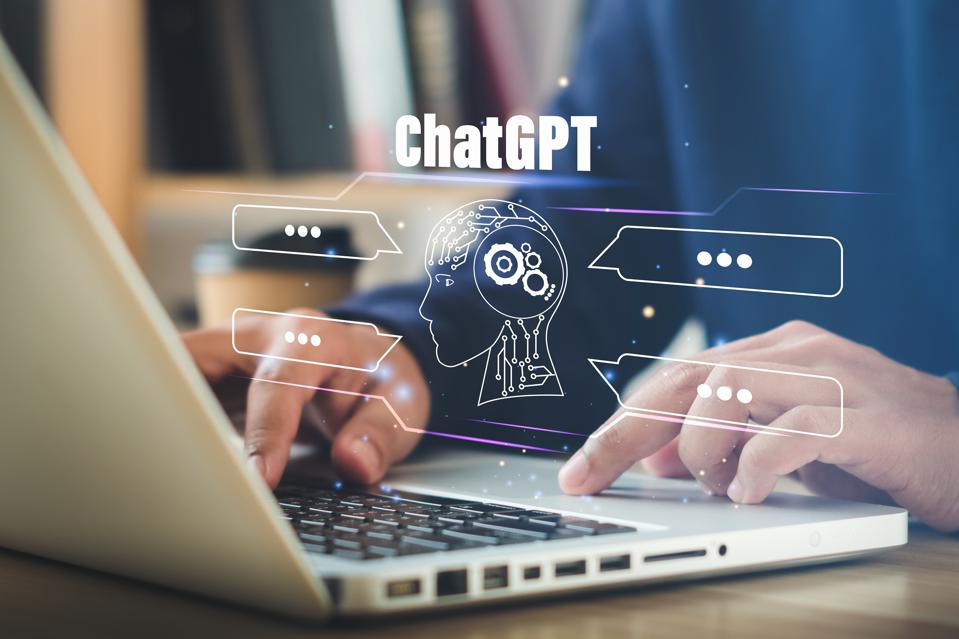Education & Career Trends: March 3, 2023
Curated by the Knowledge Team of ICS Career GPS

- Excerpts are taken from an article published in the Times of India.
Assuming that ChatGPT is a sudden breakthrough invention is a mistake. It has resulted from technological advancement interspersed with breakthroughs and pivotal milestones. Technology progresses, like evolution, according to Matt Ridley in his book ‘The Evolution of Everything’, to the “adjacent possible”, a term created by evolutionary scientist Stuart Kauffman, very seldom sidestepping or leapfrogging.
AI can be utilised to do routine work efficiently
The term “artificial intelligence” was first used in 1956 during the Dartmouth Summer Research Project on Artificial Intelligence. Ever since AI has been a subject of continued research, it has witnessed various phases of funding as well as significant milestones of achievements like IBM’s Deep Blue, which was successful in defeating world chess champion Gary Kasparov. The enhanced power of computational mechanics combined with accessible costs and significant research funding has opened the doors for AI to be commercialised, with a real-world application example being ChatGPT
Scepticism around ChatGPT?
Every new technology is received with a variety of reactions, including confusion, acceptance, and more often than not scepticism.
The case of ChatGPI is the same.
With opinions ranging from schools banning it to Elon Musk calling it “scary good” and Coursera CEO Maggioncalda describing it as “early, disruptive and risky” while also expressing intentions to integrate ChatGPT with Coursera.
Is the best course of action to oppose ChatGpT in a bid to prevent it from “killing” creativity?
Is ChatGPT “killing” human creativity?
Recognising Al’s constraints is crucial in order to enhance rather than completely replace human capabilities.
Based on the sizable amount of information it has been trained on, ChatGPT can answer questions, write stories, summarise articles, translate languages, and perform many other language-related tasks.
While AI systems are able to execute certain operations and derive judgements using data and algorithms, a major differentiator is that AI is not yet capable of thinking creatively in the same manner as humans do. Humans may become more motivated by AI to outperform these systems. As people strive to explore the frontiers of what is possible, AI may inspire even more creative pursuits.
The use of ChatGPT in education and skill development:
Students can utilise ChatGPT to receive valuable advice and feedback on their projects and tasks. Students can receive customised coaching that will help them comprehend difficult ideas more clearly and raise their learning ability. While on the one hand, it may be considered an instrument for possible plagiarism and cheating, yet on the other hand, it can assist in alleviating the workload.
By delivering important knowledge to learners and professionals and automating repetitive tasks like scoring and administrative labour. This will allow students and educators to freely concentrate on essential skills like critical thinking and creative undertakings. To help language learners improve their communication and comprehension skills as well as receive feedback on their grammar and pronunciation, ChatGPT may also be utilised to produce conversational scenarios or conversations.
ChatGPI can also be used also create specialised learning materials or activities for individuals or groups based on particular requirements and objectives to help with skilling. Another possible use is the creation of virtual coaches or tutors for subjects where coaching and hands-on practice are crucial, such as the development of technical competencies.
The correct use of ChatGPT: Teaching students academic integrity
It is more important to have clear norms and guidelines for the use of technology and for educators to teach students about citation ethics and academic integrity than it is to outright forbid the use of ChatGPT.
The best method to prevent misuse is promoting an honest culture by employing anti-plagiarism tools and by building up a standardised administrative system.
The major safeguard against ChatGPT misuse would be to improve educational pedagogy and evaluation techniques to place a stronger emphasis on creativity, leadership, social, and analytical skills. It can be simpler to remain hooked if open-book, open-internet tests were the norm, instruction went beyond textbooks, students were encouraged to think, and classroom instruction was supplemented with technologies like ChatGPT.
ChatGPT can make classroom discussions more interesting:
Winston Churchill said, “Never let a good crisis go to waste,” when working to establish the United Nations after World War II.
The more ChatGPI is perceived as a crisis, the more reason there is to make use of this as a catalyst for innovation, creativity, creative thinking, and also empathy. It is time for us to now concentrate on what humans are exclusively capable of doing when machines are given the ability to perform the tasks of humans.
…
Have you checked out yesterday’s blog yet?
Simple Habits To Help You Concentrate Better During Exams
(Disclaimer: The opinions expressed in the article mentioned above are those of the author(s). They do not purport to reflect the opinions or views of ICS Career GPS or its staff.)




2 Replies to “How ChatGPT Can Transform the Education and Skilling Sector”